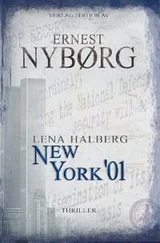Yours,
Colin
I sat at my desk for nearly an hour before it sank in that my job—my professional mandate—was to examine the life of my most recent crush.
How fitting. I was, after all, a girl with a long and tortured crush history. They had started early and with a fierce intensity. The first one, as is so often the case, was the most painful. His name was Rodney and he loved Spider-Man. I spent endless recesses watching him play dodge ball, wishing unchild-like ill will on his opposing teammates. When he got a nosebleed during a lecture by the local fire chief, I cried quietly in the bathroom, hoping for his swift recovery. I wanted to know everything about him. I watched which foods he chose at lunch—sloppy joes or hot dogs, which ice cream he liked—Nutty Buddies with the occasional Fudgsicle for good measure. One day, he gave me a plastic Minnie Mouse ring on the playground. I thought it meant something. It, time cruelly proved, did not. Rodney moved away to Akron a year later. I looked it up on the map—it was three thumbs away. It might as well have been Africa, I remember thinking.
So, here I was, twenty years later, and not much had changed. Except this time, I held the key to the lock box of my dear crush’s inner world—and I was required to look inside, inspect the contents thoroughly and report my findings. As difficult as it would be, I knew I had to quell my feelings and get serious. I might work for a show that considered a segment on Sienna Skye’s Buddha collection to be hard-hitting news, but I was still a journalist, dammit!
I picked up the phone at least three times to begin my investigation, only to put it down swiftly when the realization of my task overwhelmed me. I needed coffee. That was it. I could be a different person when properly caffeinated—nothing would stand in my way. I was hyped-up, no-non-sense Lena after a particularly potent espresso.
I marched to the kitchen to search for my loot. I stopped short when I noticed a rim of spiky gelled hair peaking over the refrigerator door—it had to be Chase. The door closed. It was just me and the Cheese.
“Leeena. Heeey!”
He was holding a Stonyfield Farms yogurt, french vanilla. I felt strongly that it was not his. I always wondered who would steal their co-workers lunch out of the communal fridge. Cheese would. I had no doubt.
“Hi, Chase. Just getting some coffee.”
“Midafternoon slump, huh?”
Could blood really boil? I pondered the thought.
“Uh, no Chase. I’m riding high on the adrenaline of my job.”
“Oh right.” He looked flustered. “Me, too.” I’d challenged his own intensity. Cheese apparently had no capacity for sarcasm.
“We’re just tweaking the Skye piece. It looks aaaaawesome, I have to say.”
He had to say that his piece looks “aaaaawesome.” Perhaps because I shot all the footage and did all of the pre-interviews. Perhaps because I had all the visuals selected and edited. Perhaps because all Cheese had to do was position himself behind the editor with his arms crossed, and nod while Nadine called the few remaining shots.
“How’s that thing you’re working on?”
Physical violence seemed inevitable.
I said nothing. I eyed his yogurt. He shifted uncomfortably. I eyed his yogurt again and then looked into his beady, lying eyes, burrowing through his tinted contacts to pierce his dark, little soul. Yogurt, Cheese, yogurt, Cheese, yogurt, Cheese, yogurt, Cheese, yogurt, Cheese.
“Okay, well I’ve got to get back to the edit,” he stammered, backing away. I waited.
“Hey, Chase.”
He turned cautiously. I paused.
“Don’t you want a spoon?” I let the words slither out slowly.
His mouth was slack, his eyes wide. He said nothing and scampered away like a roach caught by the kitchen lights.
I marched back to my desk, resolute. I didn’t need coffee—I was running on rage. Call number one: Professor Leedy.
I punched the numbers as casually as if I were calling Tess. It rang. I waited.
“Hello?” An elderly man answered.
“Hello, Professor Leedy?”
“Speaking.”
I could hear classical music in the background. I imagined he was working on a lecture, editing a book, formulating a new school of thought, while smoking a pipe of some sort.
“Hi, I’m Lena Sharpe. I’m working on a television profile of Colin Bates.”
“Oh, yes, yes, dear—he told me you might call.”
I loved Professor Leedy already. He was the sort of college professor that I was supposed to have had—not the endless stream of messy-haired grad students with bad breath, trudging through their sixth Ph.D. year, working on dissertations about the role of identity and gender in twentieth-century post-WWII Slovakian cinema.
I pictured Professor Leedy, settling back in his worn leather chair, surrounded by richly hued mahogany furniture, plush Oriental rugs, and an eclectic array of classical busts and collected artifacts from his travels throughout the world. He would be reserved but warmhearted, pleasantly rumpled but mentally disciplined. He would listen carefully, speak infrequently, but counsel wisely. He would drink bourbon and wear tweed.
“Colin, I can tell you,” he began unprompted, “is a real talent. Have you read his poetry?” He asked, sounding as if he truly hoped I had.
“Well, no—I didn’t realize he wrote poetry.” I was blushing.
“Oh, you must read it, Lena. Though I’m sure Colin would be incensed if he knew I’d shown it to you! He’s still a young man trying to preserve his tough outer shell, after all.”
“Well, I’m afraid it’s my job to chip away at that very shell.” I wasn’t sure where my words were coming from, if you must know.
“I suppose it is, my dear.” He paused, raising one eyebrow I felt sure. “I think you’ll find it to be a rewarding task should you be persistent.”
Was Professor Leedy testing me? Could the wise, aged professor be sniffing out a potential match for his prized protégé? It was a ridiculous thought, but… I panicked—how does one appeal to an octogenarian Milton scholar? What would an octogenarian Milton scholar look for? Intelligence, yes—I could string a sentence together, perhaps toss in a literary reference or two, sure. Problem was that I never found myself to be less coherent and more ditzy than when I was trying to project an erudite image. And, let’s be honest here, I was not in the daily habit of deconstructing classic literature—it just wasn’t how my life was organized at the moment.
“So, it’s done—I will send you my volume. I really think that it will help you get to the heart of, well, his heart.” He chuckled lightly.
There, that wasn’t so hard, was it? The next call, however, would not be as easy. There really was no way to prepare for this one. I cleared my throat and tried to detach myself from the bizarre nature of the task at hand. This is my job. This is my job. This is my job.
Libby Bates answered the phone herself. She sounded refined, elegant, educated. And tall. Definitely tall.
“Hi there.” Hi there?
I looked down at my notes—yes, I had notes.
“This is Lena Sharpe. I’m an associate producer at the television show Face to Face and I’m calling about the profile of your son, Colin, that we’re doing.” I started to understand how a telemarketer must feel: And, if you have a moment, I’d like to discuss your long-distance telephone service.
“Oh yes, of course. Could you just hold on for one second?…Teresa, would you mind watching the stove for me for a moment. I’ll need to take this call. Thank you.”
I was a call she “needed to take”! I wondered what she was cooking. I was glad that she didn’t expect Teresa to take care of everything.
Читать дальше












